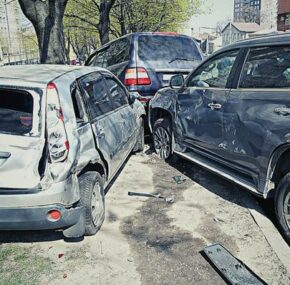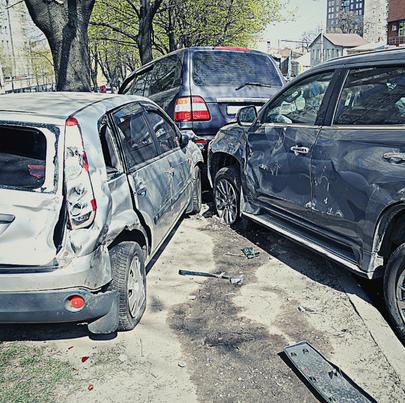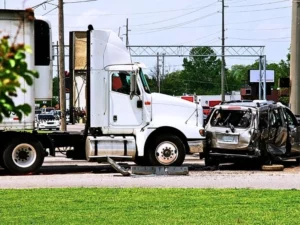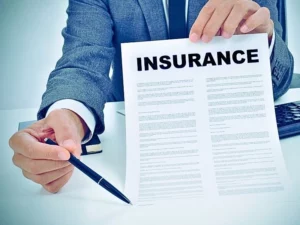A person injured in an Uber accident might ask, “How does Uber insurance work?” Uber maintains a $1 million insurance coverage for accidents and injuries caused by its drivers. The rideshare company also has a $1 million uninsured or underinsured motorist coverage, which covers Uber accidents caused by non-Uber drivers who have no insurance or insufficient insurance coverage.

Uber’s insurance also covers damages to the vehicle for amounts not exceeding the car’s actual value. The accident victim needs to pay a $2,500 deductible to activate this contingent comprehensive crash coverage, however.
How Rideshare Auto Insurance Works
Rideshare auto insurance activates the moment a driver turns on the app and is ready to accept a ride request from a customer. This coverage extends throughout the ride until the client gets dropped off at his or her destination. The driver needs to own a personal policy and commercial auto insurance plan that accepts rideshare liability to be eligible for compensation.
Rideshare auto insurance also offers liability coverage for accidents that occur while the driver is heading to pick up a passenger or during a trip. Drivers and passengers are also eligible for collision and comprehensive coverage for their damaged vehicles.
How Uber Accident Insurance Works
Uber’s auto insurance comprises three different types of liability coverage, including:
Third-Party Liability
This coverage safeguards third parties involved in the Uber accident. It protects these victims from losses emanating from property damage and bodily injuries caused by the accident.
Uninsured/Underinsured Motorist Coverage
This policy covers the Uber driver and passengers in an accident caused by another driver who has no insurance or has limited insurance coverage. This third-party motorist coverage also extends to hit-and-run incidents.
Comprehensive or Collision Insurance
This contingent coverage only applies if the Uber driver has active personal liability insurance. This option kicks in when the driver is online, and it helps compensate the owner for any resulting car damages up to the actual value of the vehicle.
Uber accident payouts depend on the activities of the Uber driver during the accident. An auto accident can occur when the driver waits for a ride request, while en route to pick up or drop off the passengers, during the trip, or after the customer gets dropped at his or her destination. Third-party insurance coverage kicks in if the app was off in the lead-up to the accidents.
Victims of Uber accidents get the least payout if the crash occurs as the driver awaits a passenger’s request. Also, Uber’s insurance policy does not provide collision or comprehensive coverage during this period. It offers significantly higher coverage for accidents that happen during the ride.
Uber’s limited insurance coverage often forces the involved third parties to foot expenses out of their pocket. Most of these cases end up in court as the plaintiffs seek higher compensation from rideshare drivers responsible for their accident-related injuries, losses, and other damages.
Are You Covered Under Uber’s $1 Million Insurance Policy?
Both Uber drivers and passengers get covered by the $1 million policy, regardless of who is at fault. This third-party liability coverage, however, applies to Uber drivers who have satisfied certain thresholds. For instance, the affected drivers must have active personal liability and commercial coverage.
If a negligent Uber driver caused the crash, and no passengers were on-board, the company often tries to disassociate itself from the claim. Here, Uber argues that the negligent driver is not their employee, but an independent contractor instead.
Uber’s Insurance versus Regular Insurance
Standard auto insurance policies have an exemption clause that explicitly prohibits a driver from commercial ridesharing activities. As such, many insurance carriers will automatically turn down any claims from Uber drivers involved in road accidents.
All Uber drivers are expected to hold comprehensive or personal liability insurance coverage. These additional coverages supplement Uber’s insurance policy.
Personal liability insurance safeguards a driver who is using a personal vehicle as an Uber. The comprehensive option covers commercial vehicles used for Uber services. Besides collision/commercial coverage, personal liability, and uninsured/underinsured insurance coverage, Uber riders are also expected to have rideshare insurance.
What to Do After an Uber accident
First, check yourself and others involved in the accident for injuries. Then, call 911 to report the accident. Inform the dispatcher of any injuries and request emergency medical services. The police will visit the accident scene and compile an accident report. This report will put you in a better negotiation position with Uber’s insurance company.
Take photos of the accident scene and note down your account while the details are fresh in your memory. Gather details of other parties involved in the crash, from drivers to injured passengers and pedestrians to witnesses.
See a doctor right after the accident to get checked and your injuries documented. Uber’s insurance carrier might claim that your injuries were caused by something other than the accident if you fail to seek prompt medical attention.
Notify Uber of the accident as soon as possible. You can do that through the company’s app. You can also visit its website for more details on how to file an accident claim.
Ensure you hire a rideshare accident lawyer with a successful record of representing Uber accident victims. The lawyer will get you a sufficient settlement through a persistent negotiation or generous compensation through an accident lawsuit.
How Much Do the Uber Rideshare Premiums Cost?
Uber drivers do not pay a dime for default insurance coverage. However, the riders can purchase alternative policies for increased protection. The premiums for these additional policies often vary depending on several factors. On average, however, a driver pays below $30 per month for personal and third-party injuries and damages coverage.
How Are Rideshare Insurance Quotes Calculated?
Insurance companies use the driver’s personal information to arrive at a quote. This is mostly done online. Here, the insurers rely on factors like the driver’s age and past driving records to generate an instant quote.
Some insurers will, however, use the driver’s personal information to get comparative rates from different insurance carriers. Then, the companies average these pulled quotes to determine the monthly premiums.
It’s important to compare the quotes from different insurance providers before settling on a particular service provider. Calling several insurance companies to learn about the available rideshare insurance coverage options is also a wise move.
Is Uber Insurance Coverage Reliable?
The insurance offered by Uber may be unreliable, since it primarily exists to satisfy state regulations. To offset that limitation, the Uber driver needs to supplement the default coverage by Uber or Lyft with other policies. These extra policies ensure that the affected parties do not personally incur medical and damages expenses.
Uber has made it quite difficult for accident victims to sue it by using legal loopholes to protect itself from accident liability. It also has dozens of seasoned lawyers to defend it against accident liability cases. That is why you need to hire a lawyer who can explain how Uber insurance works, and with a high success rate of resolving Uber crash liability cases to maximize your chances of receiving a reasonable payout.







